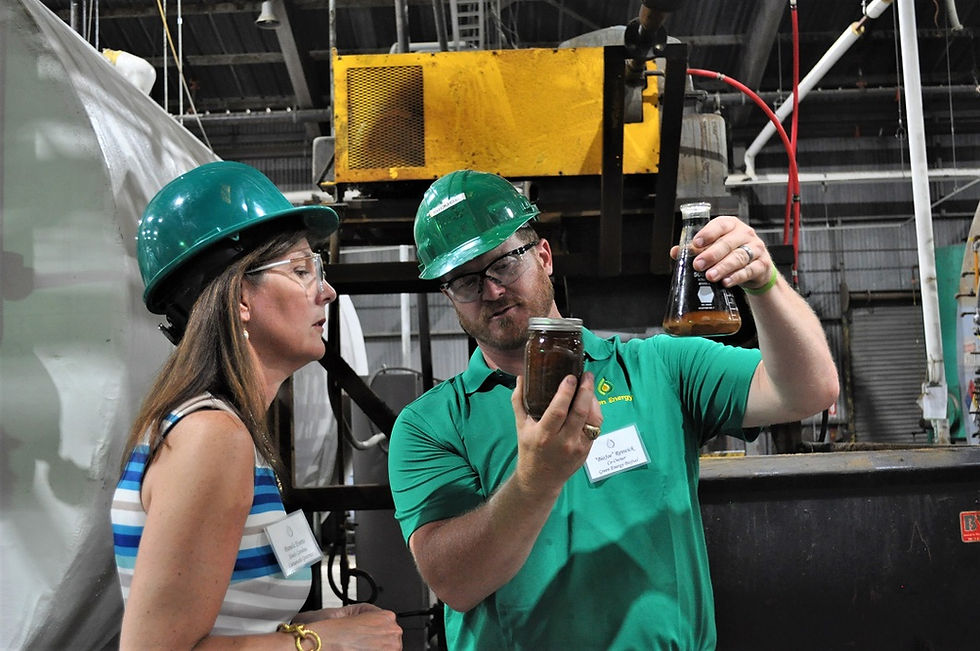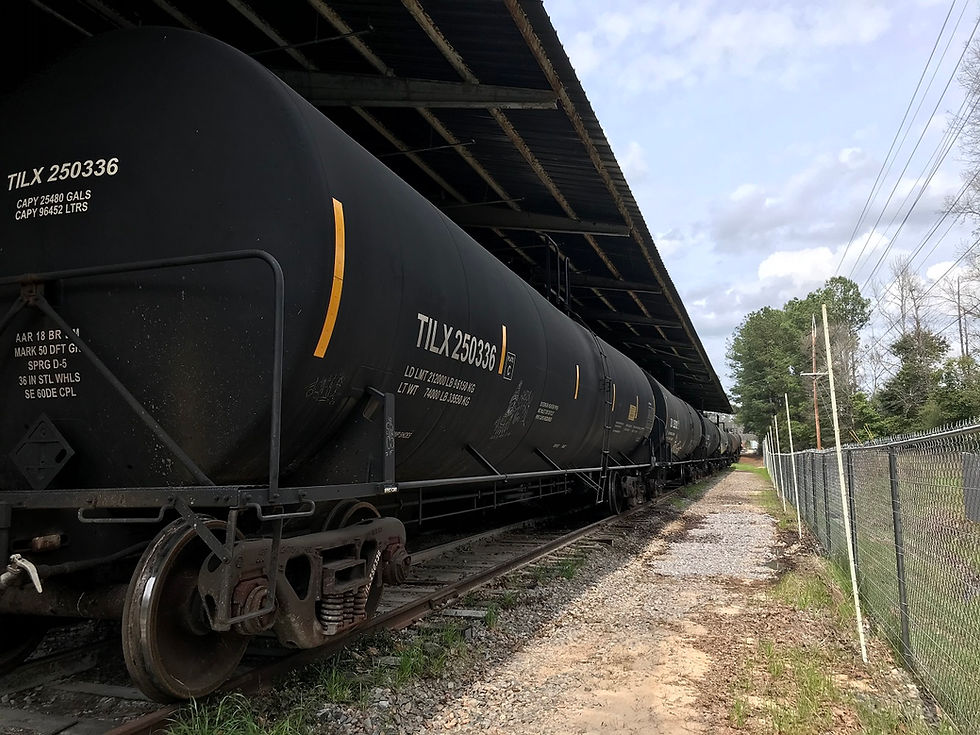Green Energy Biofuel expands waste processing capabilities, seeks new markets
- Green Energy Biofuel
- Dec 23, 2020
- 4 min read

Green Energy Biofuel stands ready to provide waste recycling solutions for a variety of businesses and industries in the Southeast by turning costly liabilities into savings. Companies can leverage Green Energy Biofuel to help meet their environmental, social and corporate governance (ESG) goals by no longer paying for waste to be landfilled. Virtually all organic waste streams, whether liquid or solid—including the dirtiest, least desirable materials—are responsibly converted into environmentally conscious products such as biofuels, compost material and more.
Green Energy Biofuel began in 2008 as Midlands Biofuels in Winnsboro, South Carolina. Midlands Biofuels provided local grease collection services for restaurants and processed the fryer oil into biodiesel. As the small company grew, it acquired a grease processing plant and 500 restaurant clients in Knoxville, Tennessee, and changed its name from Midlands Biofuels to Green Energy Biofuel.
In 2018, Green Energy Biofuel purchased its third—and largest—waste processing facility near Aiken, South Carolina, called GEB3. The company has invested significant capital into this site to accommodate waste from several large-scale clients such as Tyson Foods, whose food processing plant in Columbia, South Carolina, provided 30 to 40 percent of GEB3’s intake volume until Tyson recently closed the facility.
“We took over all their waste streams, which was sometimes four tankerloads a day and nasty,” says BioJoe Renwick, Green Energy Biofuel co-founder and owner. “In less than five months, we retooled the plant from only making biodiesel to a multi-feedstock processor that can handle anything with grease in it. The Aiken plant went from sitting idle for years to now processing 10 different industrial commercial-scale waste streams from various facilities, generating a quarter-million gallons of biodiesel feedstock every month. We have built a redundant process to bring in hard-to-deal-with waste streams and effectively process them all with no downtime.”

The GEB3 plant is divided into three sections to handle various wastes—the Good, the Bad and the Ugly. The Good is designed for high-volume used cooking oil that needs minimal processing. The Bad is tailored to handle heavy sludge waste streams with solids and water extraction systems. “We can even recover the fats, oils and greases (FOG) from large companies’ wastewater treatment facilities,” BioJoe says. The Ugly is set up to process low-quality trap grease from food processors and restaurants, refining low carbon-intensity brown grease out of the muck for resale.
“Before Tyson closed in Columbia, we had built this plant up, increased throughput and capacity, and diversified ourselves to handle all types of waste,” BioJoe says. “Now we’re in need of more products—more wastes—to process.”
Green Energy Biofuel isn’t sitting around idle though. The company is executing big plans. And BioJoe is eager to partner with businesses whose waste streams are holding them back.
The company just closed on the purchase of ReSoil, a composting facility outside of Columbia, South Carolina. A big draw of this composting facility for Green Energy Biofuel is that the site has a Class III permit to compost all types of waste, including meats, which is very unique.
“If we had owned this while servicing Tyson, we could have composted 6 million pounds of solid meat waste that was landfilled for them,” BioJoe says.
When processing waste, not all the material is reusable. “Green Energy Biofuel generates tons of compostable waste per month processing waste cooking grease,” BioJoe says. “We spend a quarter-million dollars in disposal fees. Now, all of this can be taken directly to our new facility, blended and composted. This is a way to add more value and services to our existing and future customers too.” Green Energy Biofuel’s waste cannot be composted by itself. But when mixed with streams such as soybean residues from large agricultural processing facilities, for which these ag companies often pay to be landfilled, the combination makes a “beautiful composting material,” BioJoe says.
The company is not stopping with the purchase of a composting site. Green Energy Biofuel also has its sights set on acquiring de-packaging equipment. This half-a-million-dollar investment will allow extraction of residual FOG and compostable materials from all kinds of containers, such as salad dressing bottles, plastic soy sauce packets, and dozens of others.
“This can handle wet as well as dry product,” BioJoe says. The FOG can be cleaned and sold into the biofuels markets, the dry material can be composted, and the plastic packaging can be recycled. “It’s a huge opportunity,” he says.

Green Energy Biofuel has bimodal transport abilities as well, into and out of its Aiken, South Carolina, processing center. “We have a fleet of trucks and we can put nine rail cars at any given time on our private rail spur,” BioJoe says. “Moving 25,000 gallons per load in and out of the plant onto a 24/7 rail that never stops—holidays, rain or shine. No flat tires, no traffic, no excuses. It has really stabilized our business and opened up a lot of new doors. We sell 250,000 gallons per month now and it couldn’t be easier. This allows us to focus on growth, not on the logistics of filling small tankers all day. Two railcars are equivalent to eight tankers. Our biggest problem now is finding other companies on the rail we can do business with, processing their wastes and selling them refined product.”
Over the years, Renwick and his company have proven to be resilient and forward-thinking, adapting to changes in the market place with a nimbleness unrivaled by the larger waste recycling firms.
“One issue a lot of companies have in this industry is they aren’t able to move and shake fast enough,” Renwick says. “When they find themselves in hot water, they close their doors. But we’re used to boiling water, and we’ve learned how to thrive in a hot pot.”


































